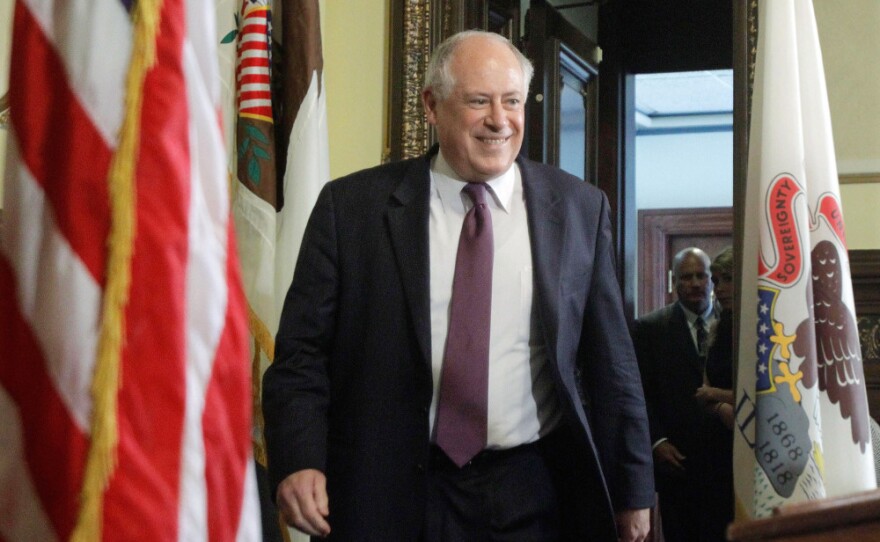Chicago Mayor Rahm Emanuel is betting a downtown casino would help boost the economy and fill holes in the city's budget.
Illinois lawmakers approved a bill last month that would give Chicago a casino and add others around the state, but the plan has hit a snag with Democratic Gov. Pat Quinn, who is threatening a veto.
Meanwhile, many Chicago residents continue gambling across the state line in Indiana.
Look at the cars, minivans and SUVs in the massive parking structure of the Horseshoe Casino in Hammond, Ind., and you'll see that most of them have Illinois license plates.
Carl Sharp says the Horseshoe is a 15-minute drive from his South Side Chicago home. But he says even though it would take longer to get downtown, he'd go there to gamble if Chicago had its own casino.
"I'd like to see the tax money stay in Illinois, yes," he says.
Emanuel says, "We have a casino in Chicago; it just happens to be in Hammond, Ind., and we're losing that revenue."
The new mayor says he's not really a gambling enthusiast but says the city has much to gain from a casino. He cites studies that estimate the project would create 7,000 to 10,000 jobs and would generate between $100 million and $130 million in revenue per year.
High Stakes
Talk about bringing a casino to Chicago goes back 20 years since shortly after Illinois' Legislature passed a law licensing 10 riverboat casinos around the state that exempted Chicago.
In a lot of ways, states become more addicted to gambling revenue than any gambler.
Lawmakers finally agreed to give Chicago a casino last month, but to placate downstate and suburban interests the bill allows for four other new casinos. It also allows slot machines at horse racing tracks, in Chicago's O'Hare and Midway airports, and at the state fairgrounds in Springfield.
And it would let Illinois' existing casinos add hundreds of slot machines as well as craps, roulette and poker tables.
But such a massive expansion of gambling in Illinois concerns Quinn.
"I think most people in Illinois, average people, when they take a look at the size of this, would say it's excessive, it's top heavy, it's too much," the governor says.
Quinn says he wants to carefully examine all 400 pages of the gambling bill, which is officially on hold now.
He met last week with Emanuel and with the legislative sponsors of the bill. Quinn says he'd be willing to allow a casino in Chicago, but he wants changes to the rest of the package. One of the legislative sponsors, state Rep. Lou Lang, isn't happy about that prospect.
"I've worked on this bill a long time," he says. "It has a lot of multiple parts. The negotiations were painstaking. It was difficult to put the right coalition together, and if you make significant changes to the bill, it may be difficult to pass a revised bill."
'Addicted To Revenue'
Illinois' casinos generated $1.37 billion for the state last year while Indiana's haul was almost double that, says Boston College economist Richard McGowan, author of Dividing the Spoils: States and the Gambling Industry.
"In a lot of ways, states become more addicted to gambling revenue than any gambler," he says.
And McGowan says that's a problem because gambling is not a consistent source of revenue, especially as neighboring states up the ante with one another in an effort to draw more gamblers.
"There's an arms race also that takes place between the states," he says. "And clearly in the Midwest, you're seeing that right now."
And it's happening elsewhere too; McGowan says New Jersey may soon legalize betting on sports in response to Pennsylvania, which has expanded gambling in recent years.
And Massachusetts may soon legalize casinos in a New England gambling war. So McGowan says if Chicago even gets its casino, Indiana is likely to do something to respond to keep Illinois' gamblers and their money coming across the border.
Copyright 2022 NPR. To see more, visit https://www.npr.org. 9(MDAzMjM2NDYzMDEyMzc1Njk5NjAxNzY3OQ001))







